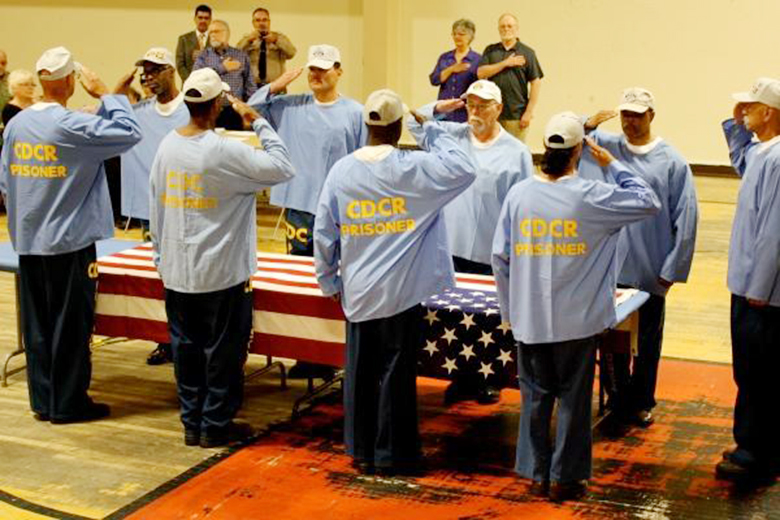
Confused by symptoms of trauma, many veterans in need of treatment act out, often violently, then find themselves in jails and prisons.
From the Federal Lawyer: “According to the fact sheet issued by the National Center for PTSD, ‘Almost half of all male Vietnam theater veterans currently suffering from PTSD had been arrested or in jail at least once — 34.2% more than once – and 11.5% had been convicted of a felony.’” Once traumatized, military veterans have a 60% greater chance of incarceration. Nearly a third of all veterans generally have been arrested.
Soldiers who fight overseas in foreign wars are more likely to experience Post-Traumatic Stress than those fighting to defend their home fronts. American soldiers in our most recent wars confront some further issues:
- Because of the lack of a formal battlefront, soldiers deal with constant threat and combat uncertainty.
- Many of the troops are from National Guard units, as such, these soldiers frequently receive much less training than active duty units.
- Tours of duty are long and they frequently include direct combat exposure.
- Many military service members face redeployment.
Mindfulness meditation can help one come to terms with one’s thoughts and emotions, cultivating peacefulness and clarity. The veterans who have been part of our prison outreach groups have benefited immensely from the practice of mindfulness. We began to develop our program for offering mindfulness to veterans in 2009 to help mitigate the problems and anxiety of PTS and other military trauma. This program was developed after a great deal of research and the careful guidance of a Ph.D. psychologist who spent three years working with trauma at the VA Hospital in Denver.
How does mindfulness deal with aggressive, chaotic thoughts filled with hurt and drama, harsh memories and overwhelming emotions? The simple practice of grounding oneself in the present moment using mindfulness techniques allows one to develop steadiness instead of reactivity, and to release the struggle with conflicted thoughts and feelings.
This approach to mindfulness is the heart of the VPoM programs working with veterans. The Department of Justice has found that incarcerated veterans make the most progress in rehabilitation if they are worked with as a unit. To this end many states have established veterans’ dorms within the prison situation.
VPoM has made a number of presentations of its mindfulness approach in prisons in Florida and Colorado, and is following up with support for these groups. The detrimental effects of combat exposure on mental health have long been recognized. Depression, anxiety, trauma, newly recognized Moral Injury, and elevated rates of suicide and violence are common among returning veterans. VPoM, taking advantage of ongoing scientific research, has for many years now provided the Warrior’s Heart Study Course to incarcerated veterans around the United States.
“Our Veterans Need Support Not Incarceration.” https://www.aclu.org/news/prisoners-rights/our-veterans-need-support-not-incarceration
Your time in Iraq makes you a threat to society Andrew Chambers from PerfectPC Services on Vimeo.